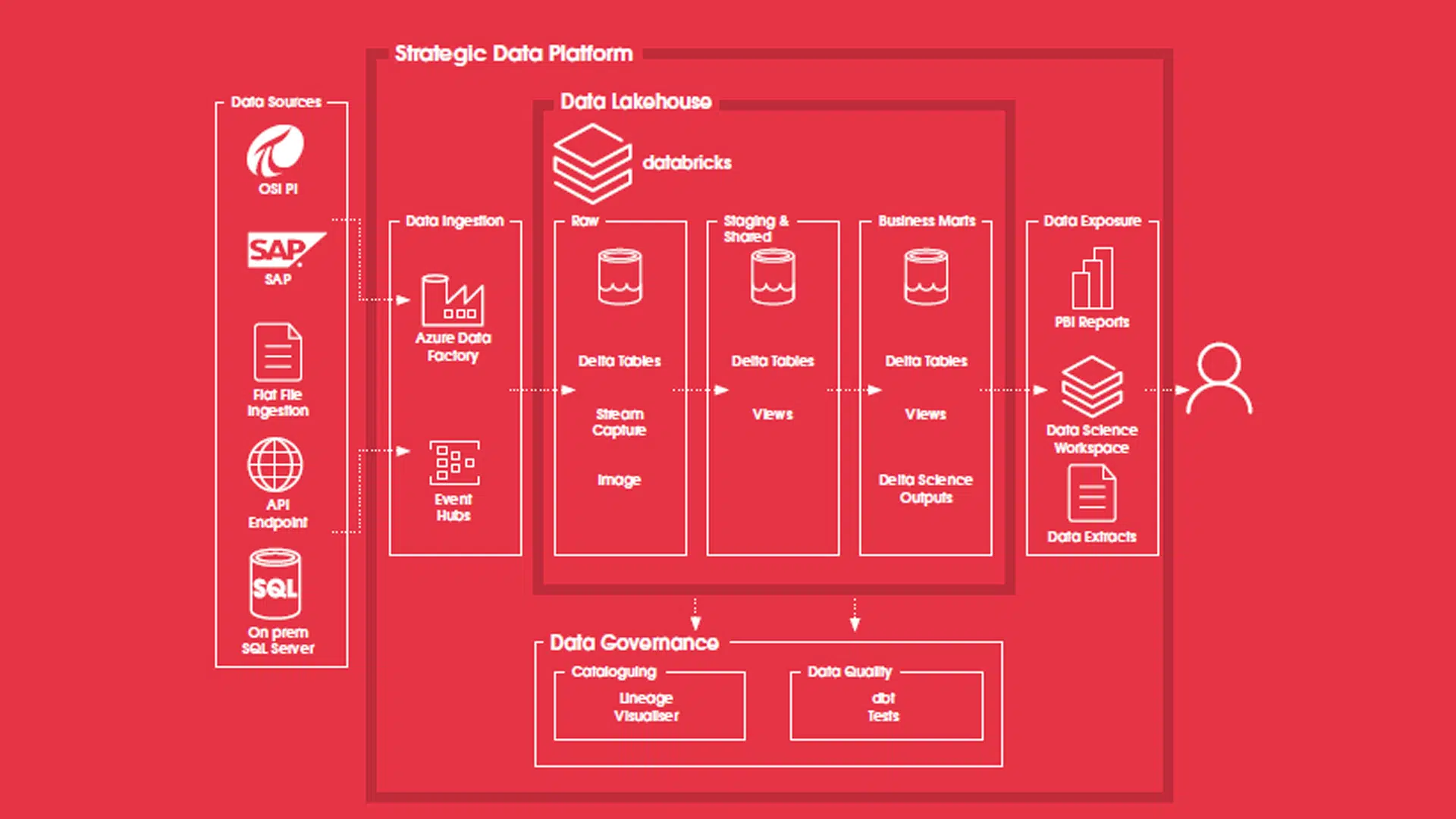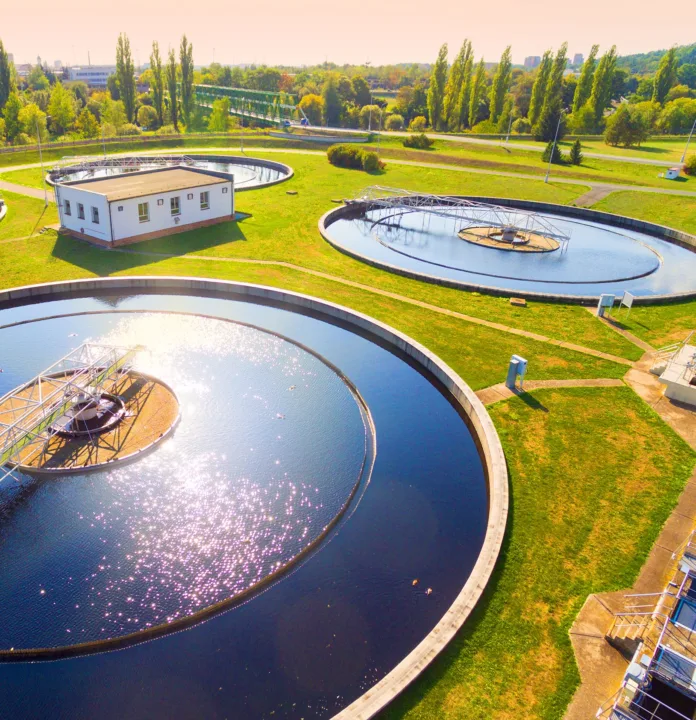Yorkshire Water faces similar pressures and demands as many other utilities, and has long realised that data is a core asset in helping them to deliver smarter network and customer operations.
This need to utilise their data assets to help exploit and capitalise their physical assets led them to undertake a complex, multiyear data transformation. This case study explains the vital delivery role provided by The Oakland Group in executing a data strategy across a broad set of areas within the data transformation initiative.
Our Water Utilities ExperienceThe challenge ahead:
Unseen infrastructure
With large amounts of their physical network and other infrastructure assets being in difficult-to-reach areas, there is a constant demand to gain accurate visibility and insights to aid decision making around service improvements.
Cost controls:
Yorkshire Water can’t execute a quick ‘land grab’ for new customers. Like all regulated utility providers, it’s not easy to rapidly grow revenues and customer share. Because new revenue sources are challenging, there is a perpetual need to exercise long-term cost controls to maintain consistent profit levels.
Demand for reliability:
Like all critical utility services, Yorkshire Water needs to be highly reliable. They must be there every day for their varied customer base. The ‘always on’ nature of their service requires careful and sustained investment in their water and sewage network to ensure reliability.

Mapping out the Data Strategy
Oakland started by helping Yorkshire Water with an early series of data strategy workshops.
The goal of these workshops was to review the current business and operational objectives that Yorkshire Water was keen to address, then map these aspirations against possible directions for exploiting their data in the future.
Working closely with the CTO team, these workshops created a ‘big picture’ view of the data journey ahead, opting for shared understanding with simple A3 diagrams instead of extensive documentation.
These workshops helped Yorkshire Water to get a taste of the art of the possible, not only for its data assets, but the distinctive mix of operational excellence, data engineering and data management capabilities provided by The Oakland Group.
Phase 2: Gaining a Quick-Win for Data by Transforming Bio-Waste Modelling
At Oakland, we like to start every data transformation with a clear and demonstrable quick win that translates data innovation into immediate value for the business while establishing sound data management and governance principles.
At Oakland, we like to start every data transformation with a clear and demonstrable quick win that translates data innovation into immediate value for the business while establishing sound data management and governance principles.
We call these early initiatives ‘Lighthouse Projects’ because they shine a light on the immediate and long-lasting benefits of new thinking around data.
Our first Lighthouse Project with Yorkshire Water was to replace the legacy Bioresource Modelling (BRM) solution that was causing frustration within the business.
Yorkshire Water treats a vast volume of liquid across its 625 wastewater treatment works, collecting one billion litres of wastewater and sewage daily. While some water is treated and released back into the environment, a percentage of sedimented material that falls below regulatory standards is chemically treated and recycled to become ‘sludge’ – a bioresource that can be recycled into commercial assets such as soil in agriculture or house bricks.
Yorkshire Water had relied on a third-party software program to manage the end-to-end bioresource process.
“Yorkshire Water’s existing bioresource software was overcomplicated and expensive. It took a long time to run because its model would do heaps of calculations on a massive Excel sheet and then feed back information that wasn’t required.
When something went wrong, the operations teams couldn’t establish the cause of the problem and make a fix without paying the third-party software vendor for a change request charge.”
Yorkshire Water challenged Oakland to build a new operational bioresource modelling solution before the legacy software license expired – in three months.
Oakland accepted the challenge and successfully delivered the project.
Yorkshire Water now benefits from a modern technology stack that includes data analytics platform Databricks and Microsoft’s Azure cloud computing platform, combined with state-of-the-art graph software.
With no future licenses to pay their legacy software provider, the solution has delivered significant financial savings, in addition to operational efficiencies for the team.
An unintended consequence of the project, Yorkshire Water has benefited from increased accountability to the UK’s water regulator, which obliges water companies to treat sludge to a certain standard before use in agriculture.

“The regulatory advantage that Yorkshire Water got through the BRM was a bonus. If a regulator asks why sludge has been sent to certain sites, Yorkshire Water can now execute models with specific parameters and use the output to answer questions.”
Phase 3: Maturing the Data Platform Architecture and Delivering Strategic Engineering Assurance
Satisfied with Oakland’s ability to deliver complex data platform initiatives, the next phase of the data journey saw Oakland invited to take on the role of enterprise architects and assurance authority for the ambitious data platform Yorkshire Water was keen to build.
Part of Oakland’s objective was to coordinate the long-term goals for aligning the new data platform to other existing or planned architectural platforms.
An example of this thinking was the strategic development and alignment of the earlier bioresource Modelling solution.
Having seen what the Oakland team had delivered by drastically cutting OpEx spending on the earlier bioresource solution, Yorkshire Water requested Oakland extend the data platform to model an even broader range of variables over a 25-year timeframe.
With a future-looking predictive capability, the business sought to significantly lower its Capital Expenditure and Operational Expenditure (TOTEX) – an attractive prospect for any utility that cannot raise prices due to regulation. This type of predictive solution perfectly aligned with the main Yorkshire Water objectives: infrastructure, cost, and reliability improvement.
Oakland adapted the bioresource solution to develop a strategic version called the Strategic BioResource Model (or SBRM), which calculates variables 25 years into the future, reflecting fluctuating electricity prices and sludge volumes.
The new platform now allows Yorkshire Water to make more informed strategic choices about longer-term infrastructure and processing investments.

Phase 4: Evolving the Enterprise and Solutions Architecture, Combined with Advanced Operational KPI Reporting
Following the success of the earlier data strategy, platform and transformation activities, Oakland was invited to deliver deeper support across two key areas:
Enterprise Architecture /Enterprise Solutions Architecture:
Yorkshire Water greatly benefitted from Oakland’s deep modelling and architecture expertise. Working with Oakland helped Yorkshire Water to model key business data domains and begin the process of adopting a comprehensive data governance framework.
Historically, Yorkshire Water had struggled to define, model and manage its customer data strategically, so this became an early target for improved architecture and governance oversight. Oakland helped Yorkshire Water successfully model its customers to create a more joined-up, ‘single view of the customer’ from an integration perspective.
Operational Key Performance Indicators:
In addition to the enterprise architecture activities, Oakland helped build new operational KPIs to bring a business outcome focus to the architecture and data innovation work undertaken.
Working with the internal data science community, Oakland assisted a KPI reporting dashboard initiative by helping to identify what data was required to drive operational KPIs with integration across complex underlying data structures and locations.
“Due to our deep understanding of the water and broader utility sector, we were able to advise Yorkshire Water not only on integrating and sourcing data to drive operational KPIs but also on defining the right KPI for specific operational needs.
Our distinctive blend of utility operations knowledge and broad data expertise ensured a distinct benefit of working with Oakland.”
Andy Crossley, Oakland Group Director
Phase 5: Helping to Accelerate a Broader Data Transformation Journey
At this point, Oakland had demonstrated its ability to deliver complex, enterprise-level capabilities.
Yorkshire Water has therefore invited Oakland into a minimum one-year agreement to execute four key data transformation stream activities:
- Stream #1: Data strategy evolution and Target Operating Model (TOM) for enterprise-wide data analytics.
- Stream #2: Defining and implementing an enterprise-wide data governance framework and associated capability.
- Stream #3: Extending and evolving Yorkshire Water enterprise architecture to help support and deliver enterprise-wide data analytics.
- Stream #4: Provide architectural, engineering and data science capability to build a telemetry platform and associated predictive models to forecast and predict leakage.
What has been the Outcome of the Yorkshire Water Data Transformation Journey so far?
Oakland is busy delivering critical milestones against each of the data transformation streams in what has been a cultural sea change for data within Yorkshire Water.
“A lot of the earlier data work undertaken within Yorkshire Water was tactical, but as a result of the data transformation journey, the internal business, data and technical communities have rightly recognised that Yorkshire Water urgently needed a more mature, strategic view of data.
The data transformation streams are rapidly delivering the mature data fundamentals critical to the growth of an innovative and progressive information-driven enterprise.
Initiatives such as data quality improvement, data governance and enterprise data architecture, not to mention the strategic data platforms and data science solutions, are transforming data capabilities into positive business outcomes for Yorkshire Water.
Infrastructure management, cost control, and reliability performance have benefitted dramatically from the results of the data transformation program, with data enablement activities helping to drive an overall business transformation ROI of £150m+.”

